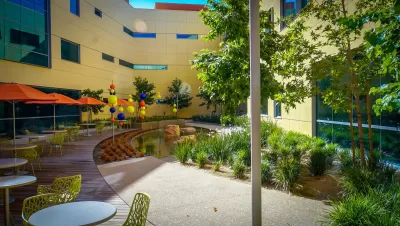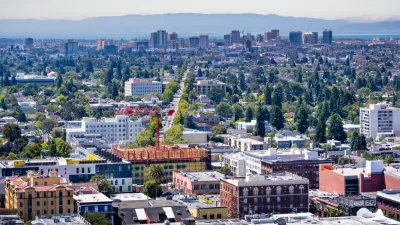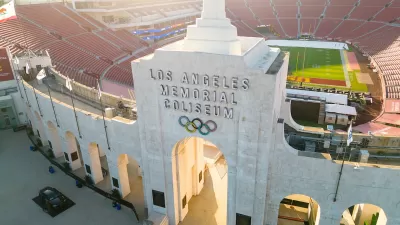Much of the focus on decreasing carbon emissions is on the electrical grid and vehicles. But, buildings are a huge contributor, and California is leading the way in making electrification a priority.

David Roberts writes about California’s Building Decarbonization Coalition and its report on the challenges in shifting buildings from fossil fuels to electricity. With 40 percent of global and U.S. greenhouse gas emissions coming from buildings, a push for decarbonization is essential, says Roberts.
The report says that new buildings should be designed so they do not rely on fossil fuels and that the state should adopt zero-emissions building codes for both residential and commercial buildings. The real hurdles, however, lie with the large number of existing buildings, particularly in convincing building owners, contractors, and policymakers about the merits of electrification.
The report also argues that electrification technology needs to be available on a larger scale to bring down costs. In addition, standards and policies should better support building decarbonization, and coordination among stakeholders is important. "The problem is that decision makers in the building sector are highly distributed. Owners, contractors, utilities, regulators, local officials, and state legislators all have some say in how buildings are built and run," notes Roberts.
FULL STORY: A California coalition is tackling one of the hardest, unsexiest parts of climate policy

Planetizen Federal Action Tracker
A weekly monitor of how Trump’s orders and actions are impacting planners and planning in America.

Chicago’s Ghost Rails
Just beneath the surface of the modern city lie the remnants of its expansive early 20th-century streetcar system.

San Antonio and Austin are Fusing Into one Massive Megaregion
The region spanning the two central Texas cities is growing fast, posing challenges for local infrastructure and water supplies.

Since Zion's Shuttles Went Electric “The Smog is Gone”
Visitors to Zion National Park can enjoy the canyon via the nation’s first fully electric park shuttle system.

Trump Distributing DOT Safety Funds at 1/10 Rate of Biden
Funds for Safe Streets and other transportation safety and equity programs are being held up by administrative reviews and conflicts with the Trump administration’s priorities.

German Cities Subsidize Taxis for Women Amid Wave of Violence
Free or low-cost taxi rides can help women navigate cities more safely, but critics say the programs don't address the root causes of violence against women.
Urban Design for Planners 1: Software Tools
This six-course series explores essential urban design concepts using open source software and equips planners with the tools they need to participate fully in the urban design process.
Planning for Universal Design
Learn the tools for implementing Universal Design in planning regulations.
planning NEXT
Appalachian Highlands Housing Partners
Mpact (founded as Rail~Volution)
City of Camden Redevelopment Agency
City of Astoria
City of Portland
City of Laramie





























